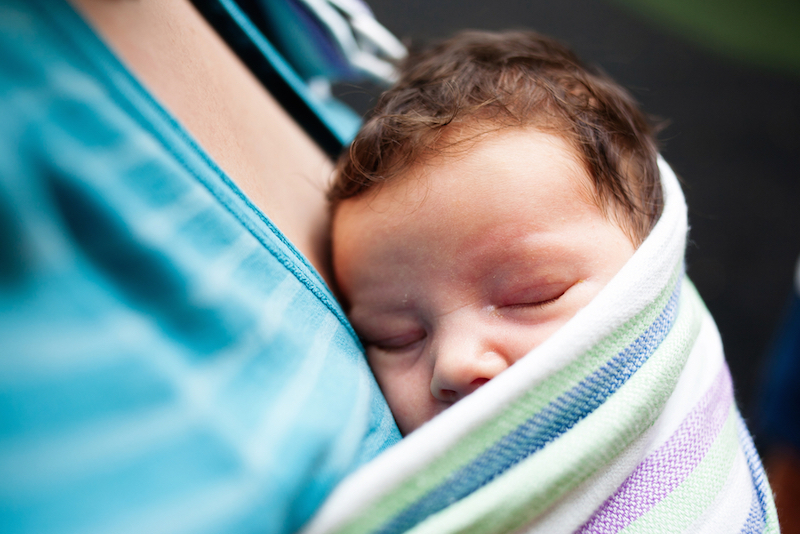Benefits of 'Kangaroo Mother Care': Do They Last?

Vulnerable babies who are held close by their parents, skin to skin, may reap the benefits of this so-called "kangaroo mother care" for at least two decades, according to a new study from Colombia.
Researchers found that premature and low-birth-weight babies who had been held by their moms or dads, with skin-to-skin contact, during their first weeks of life were less likely to be hyperactive and aggressive as young adults, compared with those premature and low-birth-weight babies who did not receive this type of care.
The babies who received kangaroo-style care also had bigger brains than those who did not receive this type of care, the researchers found. [11 Facts Every Parent Should Know About Their Baby's Brain]
"This study indicates that Kangaroo Mother Care has significant, long-lasting social and behavioral protective effects 20 years after the intervention," lead study author Dr. Nathalie Charpak, a pediatrician at the Kangaroo Foundation in Bogotá, said in a statement. The nonprofit organization advocates for research on effective ways to care for low-birth-weight babies.
Kangaroo mother care involves prolonged contact between a baby and his or her mother or father, exclusive breastfeeding if possible and early discharge from the hospital after birth, with close follow-up with a pediatrician during the child's first year of life, according to the study, which was published today (Dec. 12) in the journal Pediatrics.
In an earlier study, which was conducted in 1993 to 1996, researchers randomly assigned babies who were either born prematurely or had a low birth weight to receive either personal, kangaroo-style care, or traditional care in an incubator until they could maintain their own body temperature. The findings showed that kangaroo-style care benefited the infants' survival and brain development as well as the quality of mother-infant bonding.
In the new study, the researchers followed up with 441 of those babies, including 228 who had received kangaroo mother care and 213 who did not. The participants, now young adults in their 20s, underwent brain imaging and took tests that examined their neuropsychological health. The researchers also asked the participants about their education and work histories.
Sign up for the Live Science daily newsletter now
Get the world’s most fascinating discoveries delivered straight to your inbox.
The researchers found that the participants who had received kangaroo-style care as babies were less likely to have missed some of their schooling, compared with ones in the control group. They also earned higher hourly wages on average, the researchers found.
The participants who received kangaroo-style care as infants also had larger brains as young adults than the ones in the control group, the researchers found.
The exact reasons behind the link between kangaroo mother care and these potential health benefits are unclear, however. They might have something to do with the fact that, because kangaroo mother care requires a lot of work, a baby's entire family becomes more involved in his or her care, Charpak told Live Science. Previous research has suggested that increased parental involvement is related to better cognitive development in the child and lowers his or her risk of dropping out of school, the researchers said. [7 Baby Myths Debunked]
The study had certain limitations, however, wrote Dr. Lydia Furman, a pediatrician at the Rainbow Babies and Children’s Hospital in Cleveland, Ohio, who was not involved in the study, in a related editorial that was published in the same journal. For example, it is hard to pinpoint with certainty which specific factors might have influenced the participants' cognitive and developmental outcomes during the 20 years between the first and second studies — and that is a long time, she said. Besides the type of early care that the participants received as babies, many other potentially unmeasured factors might have affected their development during that time, she said.
She also noted that not all of the associations between kangaroo mother care and developmental outcomes that were found in the study were positive. For example, the researchers found that the math and language academic scores of the participants who had received kangaroo mother care as babies were worse later in life than for those participants in the control group.
Altogether, the findings show that the relationship between different types of infant care and later cognitive outcomes is complicated, and it is likely mediated by many factors that may vary from person to person, Furman noted.
Originally published on Live Science.










